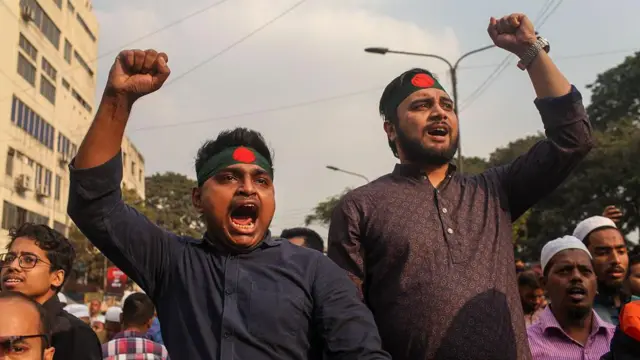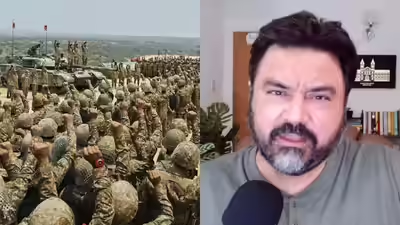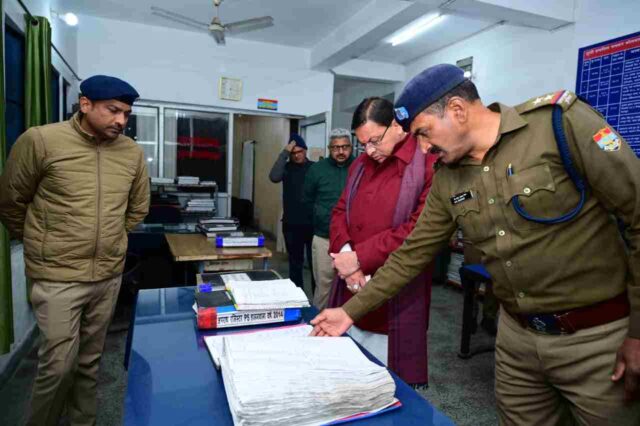Why are the radical Jews in Israel angry with this decision of the Supreme Court?

Thousands of boys and men dressed in black and white have gathered on the streets of Mea Shearim in Jerusalem. All of them are protesting against a decision of the Israeli Supreme Court.
In its recent decision, the Supreme Court said that young Haredi men should be recruited in the Israeli army and now they will not be entitled to certain benefits from the government.
After this decision, the youth studying in Yeshiva are expressing concern that this will pose a threat to their way of living a religious life. These youth argue that their prayers and spiritual studies are important for the security of Israel and the existence of Jews.
What do the protesters say?
Joseph, who took part in the protests, says that we have been persecuted for two thousand years. We are alive because we are learning Torah. Now the Supreme Court wants to take it away from us. This decision can lead to our destruction.
Another student, on the condition of anonymity, says, “By joining the army, we will have to compromise our religious devotion. Whatever work we will be given there will weaken our faith in religion. The Israeli army does not want us and they do not need us either.”
This fanatical religious community of Israel believes that by joining the army, their faith in religion will weaken. The work they will have to do in the army is not right according to their religious beliefs.
The fanatical Jewish community of Israel considers exemption from military service necessary for itself to maintain its religious identity and spiritual duties.
The role of Haredi Jews is important in Israel
For decades, there has been a controversy in Israeli society about the role of ultra-Orthodox. It used to be a small community in Israel, but now the number of this community is 1 million which is 12.9 percent of the total population of Israel.
Even ultra-Orthodox political parties are often seen playing the role of kingmakers in Israeli politics. Currently, these parties have consistently supported the government led by Benjamin Netanyahu. In return, the Orthodox have also received many benefits such as exemption from military service and hundreds of millions of dollars for their institutions.
This is a major reason for conflict between religious fundamentalists and secular Jews. Because the secular Jews also compulsorily serve in the military and pay a large part of the tax.
However, the issue of tension between the two sides and the opposition of fundamentalists has come to the fore at a time when Israel is facing its longest war ever on Gaza. Apart from this, Israel is also fighting with Hezbollah fighters in Lebanon.
Is Netanyahu putting political interests above national interests?
At a recent conference in Herzliya, a woman named Mor Shamgar rebuked Israel’s national security adviser, asking, “My son has already been in reserve for 200 days! How many years do you want to keep him? Why are you not ashamed?”
Mor Shamgar’s son is posted as a tank commander in southern Israel. Shamgar’s frustrated comment was also widely shared on social media.
Army leaders are complaining about the shortage of military manpower. Shamgar says that he had earlier voted for Prime Minister Netanyahu’s party. But now he believes that the government has handled the situation very poorly. On the issue of military draft, the government has put its party’s political interests ahead of Israel’s national interests.
Shamgar says, “Netanyahu and his colleagues are making a big mistake thinking that they can fool the public. Because when you can impose a rule on half the population of the country that they have to go to the army, then you cannot exempt the other half from it. This is not secularism versus religion. I see it as an issue of equality. You cannot make laws that make half the population second class citizens.”
There is also public support for ending the broad exemption given to the ultra-Orthodox people on the issue of joining the army. This was indicated in a survey by the Israel Democracy Institute earlier this year.
According to the survey, 70 percent of Israeli Jews want to end the complete exemption from military service for the ultra-Orthodox people.
Radical religious political parties are supporting the government
However, despite earlier threats, radical religious political parties have not yet stopped supporting the Netanyahu government on the issue of army recruitment. Efforts are also underway to advance an old bill that would allow Haredi people to be partially recruited into the army. But Haredi leaders have previously rejected the bill.
At an ultra-Orthodox prayer house in Jerusalem, men of all ages gather wrapped in their prayer shawls for morning service. Their Orthodox lifestyle is based on a strict interpretation of Jewish law and customs.
Despite efforts to recruit ultra-Orthodox people into the army, very little has been done in this direction. Only one battalion, Netzah Yehuda, has been established to meet the Orthodox’s gender-separate demands. This battalion has a separate time for kosher food, daily religious activities and prayer.
What do Orthodox rabbis say?
But Rabbi Yehoshua Pfeffer, an ultra-Orthodox rabbi who works to unite ultra-Orthodox Jews and is on the board of an NGO supporting the battalion, thinks the government could still make more compromises. A new haredi brigade could be formed in the army.
“It’s up to the haredim to come forward and say we’re ready for real concessions. We’re ready to step out of our traditions. So that the government can take some proactive steps to allow more haredis to serve,” says Rabbi Yehoshua Pfeffer.
Rabbi Yehoshua Pfeffer suggests that the thousands of young ultra-Orthodox men who currently do not study Torah full-time may not find themselves suited to academic rigor. Such young people should be encouraged to join the army like other Jewish Israelis of their age.
In addition, Rabbi Pfeffer also appealed to the Israeli army to build trust and improve relations with the ultra-Orthodox Jews in order to maintain its reputation as the ‘People’s Army’.
According to the rabbi, “There is still a lot of work to be done. There are many adjustments to be made. But they are not rocket science.” So far, the process of implementing the ultra-Orthodox draft also seems to be moving slowly.
Thousands of Haredi Jews are registered as Yeshiva students
In Israel, more than 60,000 ultra-Orthodox men are currently registered as Yeshiva students and are exempt from military service. But after last week’s Supreme Court decision, the army has been asked to plan to recruit only 3,000 additional people from this community.
Even after this, some protesters showed violent behavior at night in Mea Shearim and threw stones at the police. Apart from this, the protesters also attacked the car of two ultra-Orthodox leaders in Jerusalem. The protesters believed that these leaders were supporting the government on the issue of military draft, which has disappointed them a lot.
If seen historically, this community is an isolated group or class which has been opposing change. But looking at the draft and the Supreme Court’s decision, it seems that major changes will soon be made amid growing public pressure in Israel and fears of the war becoming widespread.






